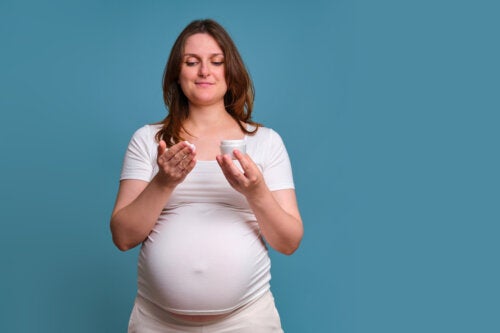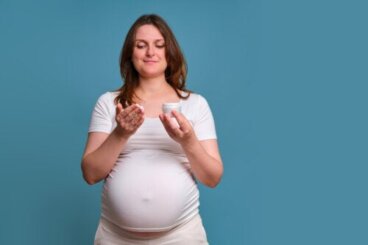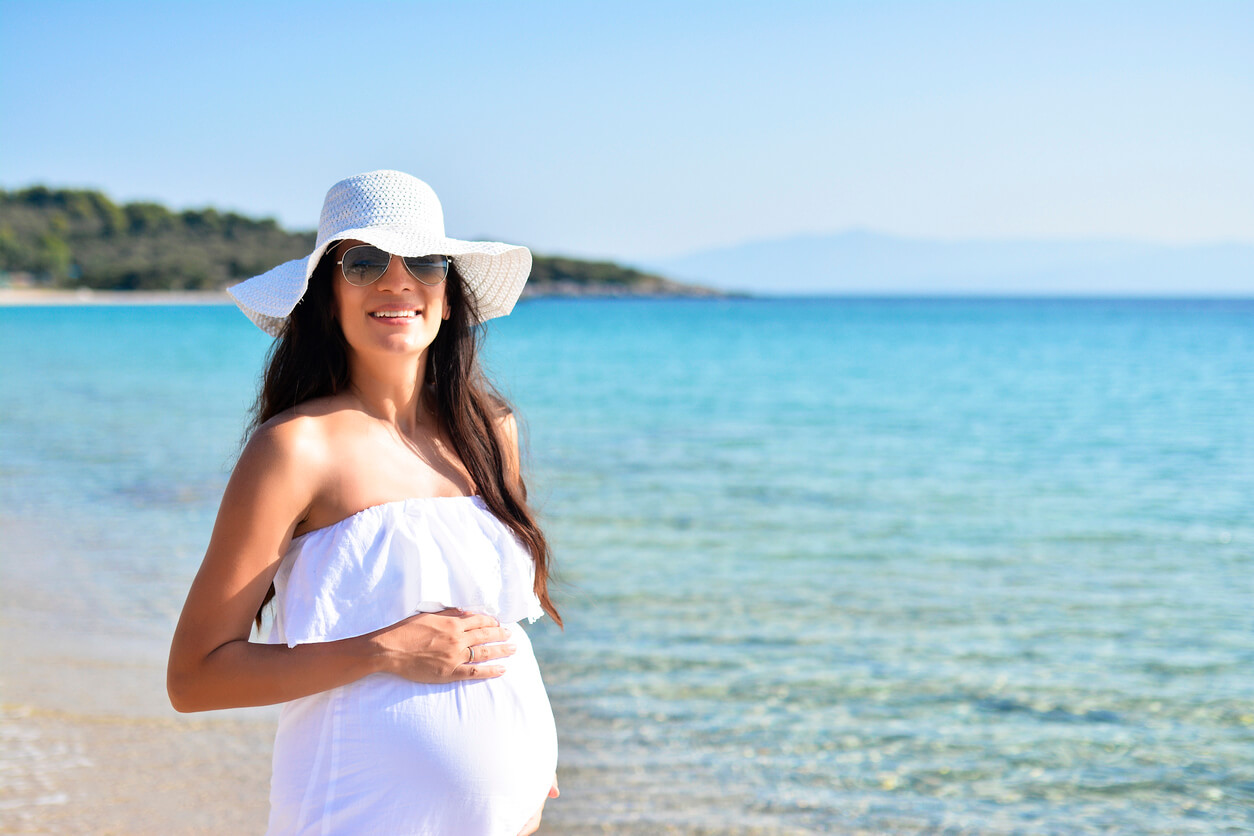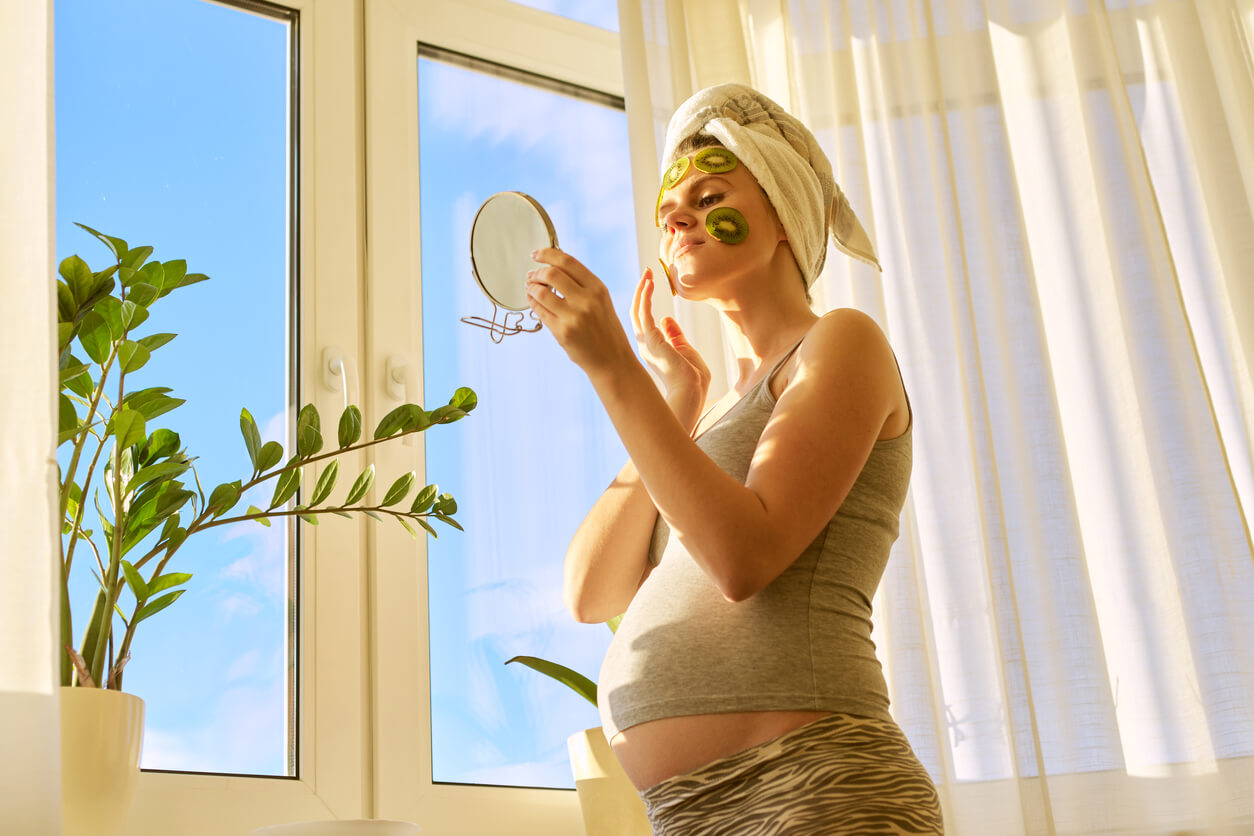Did you know that some skin and hair care products can be harmful to your unborn baby? We tell you more.
Cosmetics are one of the many products that are replaced in the care routine during pregnancy. Although there are several aesthetic treatments on the market, not all of them are suitable for the skin and hair of pregnant women.
Just like the body, the hair and the surface of the skin undergo alterations secondary to the hormonal imbalances of pregnancy. For this reason, today we are going to tell you which are the safest cosmetics for your beauty treatments.
Cosmetics for skin during pregnancy
During pregnancy, certain aesthetic treatments and cosmetic products are contraindicated or not recommended. Due to the lack of evidence in favor of their use, as well as the existence of data, it is always best to follow the recommendations of experts.
1. Sunscreens
Sunscreen is one of the most recommended cosmetics during pregnancy. Because the skin is very predisposed to developing hyperpigmented spots upon contact with solar radiation.
For this reason, all pregnant women should use sun protection 30 minutes before exposure to the sun and reapply it every two hours. It is wise to choose those which have a filter greater than 50 and which are free of PABA (4-aminobenzoic acid).
2. Moisturizing creams
Emollients or moisturizers are one of the most recommended options to add to the skin care routine during pregnancy. Good hydration helps keep the skin in perfect condition: smoother, more elastic and with less risk of cracking due to distention.
Furthermore, the most recommended products are those that contain Vitamin E, Vitamin A, Hyaluronic Acid and Allantoin. In fact, they must be applied every day, at least twice.
Also read: Oily skin during pregnancy: advice and care
3. Topical Antioxidants
There are different active ingredients on the market to add to your skin care routine during pregnancy. Some of them are hyaluronic acid, green tea, coenzyme Q, vitamin C and antioxidants, among others. It is always better to choose products that are non-comedogenic and suitable for sensitive skin.
Products that contain moisturizers help to quickly increase the water content of the skin and reduce water loss through this tissue.
4. Topical scrubs
On some occasions, the hormonal alteration triggered during pregnancy predisposes to the appearance of lesions such as acne. Although it is not recommended to use glycolic acid in high concentrations during pregnancy, Formulas found in over-the-counter products are safe.
Azelaic acid and the like, like glycolic acid, also help in skin lightening. As well as the reduction of fine lines and hyperpigmented lesions in this tissue. Indeed, theAmerican College of Obstetricians and Gynecologists endorses the use of azelaic acid and glycolic acid to treat acne lesions during pregnancy.
Hair cosmetics during pregnancy
During pregnancy, it is common for hair volume and density to increase. Although significant hair loss is evident after childbirth. This condition is common but can be easily prevented with products.
Most hair products, including shampoo, dyes, hairspray, conditioner, and gel, are considered safe to use at this point. Especially after the first trimester.
Chemical-free shampoos
Organic shampoos, without sulfates or parabens and without chemical additives, help maintain healthy hair and preserve the natural oils of the hair fiber.
These products do not promote dry scalp. They therefore prevent itching and seborrheic dermatitis (dandruff).
Also discover: Hair loss during pregnancy: what to do?
Henna colors
There are certain components found in hair dyes that are best avoided during pregnancy. Paraphenylenediamine (PPD) is one of the most controversial active ingredients for use during this period.
Therefore, any hair color that does not contain parabens, ammonia, resorcinol, peroxide and paraphenylenediamine is safe during pregnancy. Henna-based color is therefore entirely possible.
Anti-frizz products
The ideal is to use spray presentation products to fight frizz. And not to use toxic solutions containing added chemicals.
Some options contain BPA, phthalates and parabens. These substances act as hormonal disruptors in the body of the mother and baby. While some substances in hair products would be banned during the first trimester, other doctors say they are safe.
The different opinions are based on the lack of available evidence on the safety of using certain chemicals during pregnancy.
The choice of cosmetics during pregnancy
If you have any concerns or doubts about using cosmetics during pregnancy, it is always best to discuss this with your obstetrician or dermatologist. Indeed, it will be the specialist who will be able to indicate the safest products, components or active ingredients to consider.
Finally, the ideal is to opt for organic, natural and hypoallergenic preparations which have the approval of recognized and reliable institutions.
All sources cited have been thoroughly reviewed by our team to ensure their quality, reliability, timeliness and validity. The bibliography for this article has been considered academically or scientifically reliable and accurate.
- Pavicic T, Gauglitz GG, Lersch P, Schwach-Abdellaoui K, Malle B, Korting HC, Farwick M. Efficacy of cream-based novel formulations of hyaluronic acid of different molecular weights in anti-wrinkle treatment. J Drugs Dermatol. 2011 Sep;10(9):990-1000. PMID: 22052267.
- Goh CL, Dlova CN. A retrospective study on the clinical presentation and treatment outcome of melasma in a tertiary dermatological referral center in Singapore. Singapore Med J. 1999 Jul;40(7):455-8. PMID: 10560271.
- Philippat C, Mortamais M, Chevrier C, Petit C, Calafat AM, Ye X, Silva MJ, Brambilla C, Pin I, Charles MA, Cordier S, Slama R. Exposure to phthalates and phenols during pregnancy and offspring size at birth. About Health Perspective. 2012 Mar;120(3):464-70. doi:10.1289/ehp.1103634. Epub 2011 Sep 7. Erratum in: Environ Health Perspect. 2012 Mar;120(3):470. PMID: 21900077; PMCID: PMC3295340.
- Pastore S, Korkina L. Redox imbalance in T cell-mediated skin diseases. Mediators Inflamm. 2010;2010:861949. doi:10.1155/2010/861949. Epub 2010 Aug 4. PMID: 20847812; PMCID: PMC2929514.
- Skin conditions during pregnancy. (Internet) Available at: https://www.acog.org/womens-health/faqs/skin-conditions-during-pregnancy?utm_source=redirect&utm_medium=web&utm_campaign=int




